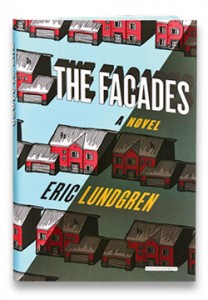
What led you to become a book author? What do you hope to achieve or gain?
I’ve always been a solitary, very shy person. In reading fiction, I found an addictive and intensely private form of pleasure, and also a way to express thoughts and visions that aren’t readily admitted in everyday life. Fiction, to me, isn’t just entertainment (though it’s also that), it’s a form that registers the deepest tremors and thrills of being a self in the world.
Are there other writers (or non-writers) who have influenced you and how so?
Definitely – just to mention two here, Italo Calvino’s novel Invisible Cities was sort of what got me started writing this book. The fictional city in The Facades is named after one of Calvino’s cities. I am also a great fan of the embittered and obsessive Austrian novelist Thomas Bernhard, and there is a peculiar architect in the novel named after him.
What are your likes and dislikes about writing?
The early stages of rough drafting are pretty awful for me. It feels like digging a tunnel without knowing what it will ultimately connect to (if anything). It’s only in the later stages, working the sentences, when I really start to derive pleasure from the process.
Do have any rituals as to how, when and where you work?
I have a full-time job, so it is a matter of finding the spare moments, along with the energy and self-delusion to go forward. I tend to write early in the day or late at night when I’m close to sleep. The night mind is what I’m after, the buried and irrational stuff.
What’s your take on the publishing experience — your trials and how the process may have changed you and your career?
The Facades almost ended up in a drawer. So I learned, on the one hand, that it is very tough to sell a weird, idiosyncratic book like this. On the other hand, I found that things can turn around really quickly — especially when you have a great publisher behind the book — and this strange isolated-seeming thing can win acclaim and resonate with readers.
Does publishing a successful first novel present more opportunities or challenges for a follow-up?
It opens up the opportunity to publish another book, which is wonderful. But on the other hand, past success is no help at all with the writing of the second book, and there’s also the temptation to rush or force things along. Knowing that people may actually be interested in reading the book is a great motivator, though.
What are your favorite pastimes other than writing? And how do you re-charge, to stay inspired to write?
It’s usually experiencing other arts — film, painting, music. Or simply getting outside and taking a walk in the park with my wife. I was going to mention my cats, but … they are not really a positive influence.